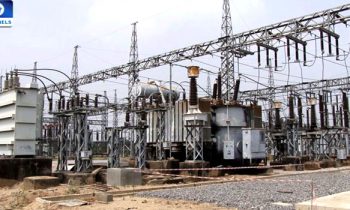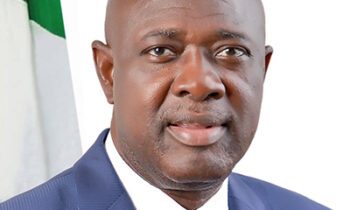… as southern govs support state collection

Olusola Bello
Dialogues between the Federal and State Governments is the only thing that will resolve the current brouhaha over Value Added Tax according to a tax expert.
Emmanuel Ijewere, Former member of the National Economic Council and also the chairman of the committee that fashioned out VAT in the 1990s, urged Federal Government and states to dialogue a value added tax (VAT) sharing formula, saying that rulings by Court of Appeal and Supreme Court will not resolve conflicts surrounding the consumption tax.
“Whatever happens at the courts, value added tax will not be the same anymore. If the Supreme Court says the FIRS should collect the VAT, I assure you that there will be no end to it because what’s involved here is a huge amount of money. And, states, which have political responsibility, will not allow it to stay there. So, the fighting will continue, the confusion will continue, and sabotage will come into it,” he said.
The Tax expert said the electorate would not allow their governors to rest if the judgment did not favour them because of the huge amount involved in the VAT.
He said this on Channels TV’s ‘Sunrise Daily’ on Thursday stating that whatever decision the courts took would not end the stalemate caused by the matter.
Ijewere blamed the military regime of General Ibrahim Babangida for the VAT crisis.
He said during the military regimes, state governments collected what was then known as ‘sales tax’ through their officials.
Sales tax, he said, metamorphosed into value added tax after his team of tax experts made a recommendation to the Babangida regime on how to improve sales tax by state governments.
While states collected sales tax by their employees, the Federal Government also had its tax collectors – the Federal Inland Revenue Service.
He said his team made the recommendations to Babangida’s government because tax officials saw their work as a routine job and not as a profession, thereby making their operations inefficient at the time.
After his team submitted its recommendations, General Babangida set up a 28-man committee, to which he (Ijewere) belonged, to review tax collection among states and the Federal Government. The government converted his team to the Modified Value Added Tax Committee.
“When we presented the report in 1992, we found out that the Supreme Military Council changed it that it could no longer be what we presented to them. That is, each state should collect its tax. Because their system was not strong enough, we recommended a commission that would act as agent for them, and at the end of every month present the report on the amount collected to each state.”
The committee, Ijewere said, suggested that the commission would take five per cent of the fund it generated to train the tax collectors in the states.
The committee recommended that the commission end its work within four or five years, after which states should have got enough workforce to collect the VAT, and they would fully assume power over VAT collection.
Before his team submitted its report, it consulted leading financial institutions, including the World Bank, he said.
He further said that the former chairman of the Federal Inland Revenue Service David Olorunleke and many state governors were also pleased with the team’s recommendations.
He said part of his team’s recommendation was that the Federal Government would take taxes from ports, while the states would take from other places other than the ports.
He said whatever the outcome of the court ruling would be, states should be more serious with revenue generation.
He also said whatever the court’s ruling on the matter would be, the mindset of states and the Federal Government would no longer be the same.
He described the enactment of VAT laws by states as the beginning of fiscal federalism in the country.
He, nevertheless, said some of the laws “are not realistic” because they failed to consider the inter-state movement of goods, adding that state laws could only apply in their territory.
Meanwhile,the Southern Governors Forum has expressed support for the collection of the Value Added Tax by states.
The governors made their positions known on Thursday, during their meeting in Enugu on Thursday.
The disagreement over VAT started last month when the Federal High Court sitting in Port Harcourt, in a judgment in suit number FHC/PH/CS/149/2020, held that the Rivers State Government had the powers to collect VAT within its territory.
Although Rivers and Lagos states have started the process of collecting VAT within their territories, the Court of Appeal in a ruling on September 10 stopped the collection pending the determination of an appeal filed by the Federal Inland Revenue Service against the judgment of the Federal High Court sitting in Port Harcourt.
Apart from Lagos and Rivers states, Ogun State has also starting the process of passing a bill on VAT in its House of Assembly.
Reading the resolutions of the forum shortly after the meeting which was attended by nine governors and seven deputy Governors, the Chairman of the Forum and Governor of Ondo State, Rotimi Akeredolu (SAN), stated, “The meeting resolved to support the position that the collection of VAT falls within the powers of the states.”
The forum urged governors that had not enacted the anti-open grazing law to do so without much delay.
Akeredolu, in the seven-point communiqué, said that the governors were satisfied with the rate states were enacting and amending the anti-open grazing laws in line with the uniform template and aspiration of the forum.
The communiqué reads: “the Southern Governors Forum expresses satisfaction with the rate at which the states in the southern Nigeria are enacting or amending the anti-open grazing laws which align with the uniform template and aspiration of Southern governors and encouraged the states that are yet to enact this law to do so expeditiously.
“Encouraged the full operationalization of already agreed regional security outfits; which would meet, share intelligence and collaborate, to ensure the security and safety of the region.
“Reaffirmed its earlier commitment to fiscal federalism as resolved at the inaugural meeting of the Forum held on Tuesday, 11th May 2021 at Asaba, Delta State and emphasized the need for the southern states to leverage the legislative competence of their respective State Houses of Assembly as well as representation in the National Assembly to pursue its inclusion in the Nigerian Constitution through the ongoing constitutional amendment.




